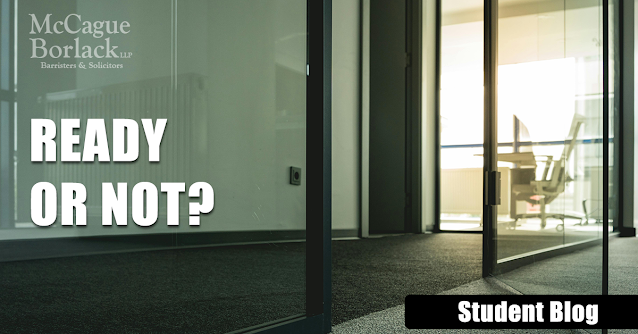I was a full-time student for 20 straight years. Over time, I found a comfortable routine and enjoyed the rhythm of academic life—especially having summers off. Without a doubt, my favourite part of being a student was the flexible schedule. Law school amplified that flexibility: some days I could sleep in, and other days I had long gaps that allowed me to take walks around the city or meet up with friends.
I thought life as I knew it would come to an end when I began articling. But I’ve worked hard to organize my new routine in a way that fits my lifestyle.
I am a morning person. Late-night studying was never my thing, so early in my articling term, I started coming into the office an hour before the office day officially began. That quiet time has become one of the most productive parts of my day.
Staying connected with friends has also been a priority. It’s easy to get caught up in work and then retreat into solitude after a long day. But I’ve found that making plans to see friends after work is one of the best ways to recharge and stay grounded.
With a full-time schedule, work-life balance is essential. With my early start, I have time to get to the gym or take a run before dinner. I play ice hockey on weekends and squeeze in a round of golf whenever time permits. Staying active is essential—not just for my physical health, but for managing the stress that comes with working in a busy law office.
While many colleagues enjoy working remotely, I’ve found value in being in the office daily. When my schedule aligns with other students, we take short walks to Parliament for fresh air—echoing the walks I used to take as a student. We also share lunch breaks in the lunchroom, catching up on work and life outside of law. Sometimes, other lawyers join us, adding to the camaraderie and conversation. These moments of connection add satisfaction to the day.
Transitioning from student life to articling has been significant—but not in a negative way. By preserving the routines and relationships that kept me grounded as a student, I found stability and joy in my new role. Change can be daunting, but it also brings opportunity. With intention and self-awareness, it’s possible to carry forward the best parts of your past while embracing the growth that comes with new beginnings.
by Matthew B.












